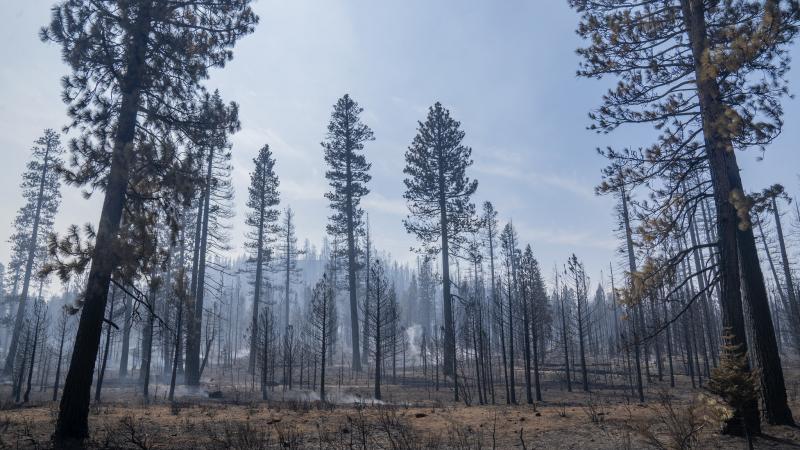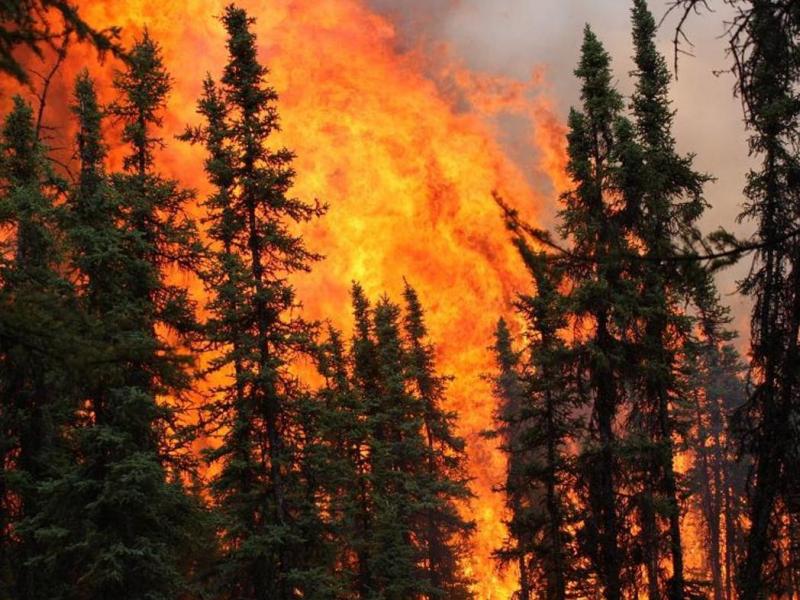
Coordinated Federal Climate Networks to Enhance Adaptation and Resilience at the Regional Scale
A changing climate has altered seasonal patterns and resulted in more frequent and severe weather events across the U.S. and its territories. Climatic events are complex, exploiting vulnerabilities in social, environmental, ecological, and infrastructure systems, inflicting damage, and causing losses across communities, sectors, and resources. The impacts of climate change are felt locally, regionally, and across jurisdictions, not only impacting state, tribal, local, and private resources, but federally managed ones as well. Demand is outpacing available resources for actionable scientific information that enables local decision makers to work collaboratively, across landscapes, to implement adaptation strategies that reduce risk and build resilience. To address this need, federally supported regional climate science-to-action networks at the United States Department of Agriculture (USDA), National Oceanic and Atmospheric Administration (NOAA), and the Department of the Interior (DOI) closely coordinate to ensure that relevant scientific information and adaptive management strategies are available to address the broad array of stakeholder-identified needs. The Federal Networks include the DOI USGS Climate Adaptation Science Centers (CASCs), USDA Climate Hubs, and the NOAA Regional Integrated Science and Assessments Program (RISA). Each program is discussed below.
- CASCs identify the effects of climate change on fish, wildlife, and their habitats to provide natural and cultural resource managers with the science needed to support adaptation planning. The CASCs operate in partnership with universities located throughout the country, leveraging diverse expertise to tackle the most pertinent climate issues within each CASC region. They address the needs of federal, state, and tribal/indigenous resource managers as they seek to incorporate climate adaptation into their planning processes.
- Climate Hubs develop and deliver science-based, region-specific information and technologies to agricultural and natural resource managers leveraging USDA investments and regional partner networks to enable climate-informed decision making, reduce agricultural risk, and build resilience to climate change. The Climate Hubs work with USDA agencies and their partners, forest managers, farmers, and ranchers to ensure they have useful and usable information about climate change and its impacts when making strategic and operational management decisions.
- The NOAA Climate Adaptation Partnerships (CAP) program, formerly known as RISA builds sustained relationships between decision makers and researchers that support collaborative and equitable adaptation to climate risks. Regionally-based interdisciplinary research teams partner with public and private entities to identify climate relevant scientific needs and inform innovative solutions that promote social welfare, equity, and community resilience across a diverse range of sectors and landscapes.
These networks have a shared goal of building national resilience to climate change by offering long-term and engaged support with localized scientific expertise and information, and tailored solutions. All three networks rely on partnerships within their regions, which include scientists, practitioners, and local decision makers, to identify regional vulnerabilities, scientific needs and data, and methods for mitigating impacts and adapting to changing conditions.
How We Coordinate
Each network is designed to address climate concerns relevant to their respective agency’s mission, yet overlapping geographies mean shared climate and weather events that affect multiple stakeholders, infrastructures, and landscapes simultaneously. Designing agency programs to support mission-relevant partnerships ensures that decision makers obtain consistent information in the form and at the level of detail appropriate to their activities. The federal networks link their regional efforts to ensure that those affected by the same type of event benefit from more comprehensive and robust scientific expertise and innovative practices from across the federal government. Working together, the networks leverage knowledge and resources to address the growing demands for climate related support.
The Climate Hubs, RISAs, and CASCs interact formally and informally at national and regional levels. At the national level, program managers collaborate by regularly sharing information, co-designing cross-network collaboration opportunities (including with the U.S. Global Change Research Program), and jointly developing a cross-network strategic vision. At the regional level, teams located within the same geographic areas work together on projects, exchange best practices, co-host training events, and expand inter-agency extension and outreach efforts. One example includes the “Three Centers Retreats” where RISA’s Western Water Assessment, the North Central CASC and the Northern Plains Climate Hub meet twice a year to collaborate and coordinate across programs. Advisory councils for the regional entities often include representation from regional leadership of the corresponding networks, supporting regional strategic planning and coordination. Coordination and collaboration across these networks at the national and regional level helps leaders identify common needs across sectors, develop best practices for information sharing, and leverage resources to create solutions.
This growing interagency coordination supports the expansion of the networks’ reach in serving communities, resource managers, governments, and tribes; and allows more stakeholders to know where to go for comprehensive climate information and expertise, how to access resources, and where to request assistance when preparing for and responding to risks.
Examples of Cross-Network Collaboration
Drought in Alaska: Leveraging Assets within a Region
Alaska is warming at more than double the rate of the rest of the world. As warming occurs, precipitation patterns are changing as well. Since early 2018, Southeast Alaska has experienced abnormally dry conditions, affecting hydroelectric power generation, drinking water, streams, fish, and fish hatcheries. The Northwest Climate Hub, the Alaska CASC, and the Alaska RISA - Alaska Center for Climate Assessment and Policy (AACAP) have been working together, and with additional partners like the National Integrated Drought Information System (NIDIS), to refine drought categories for the region, increase awareness of the National Drought Monitor, refine adaptation strategies, and to assess drought information. During 2021, this group hosted the Alaska Drought Webinar Series, which included seven webinars that sought to provide information on the impacts of drought in Alaska, to influence changes in response to dry conditions, and to collect information to assist in the organization of a future in-person workshop aimed to help communities prepare for drought in the future. The webinars were followed by five regionally-based, stakeholder listening sessions to inform drought research priorities in Alaska. The collaborative work has brought together a broad group of stakeholders from forestry to tourism, amplifying knowledge of a variety of federal resources, and leveraging scientific and engagement expertise from across the networks to generate comprehensive products.
Wildfires Across the United States: Diverse Regional Projects for National Impact
The frequency and strength of wildfires has dramatically increased across the U.S., causing billions of dollars in damage and displacing entire communities. The RISAs, CASCs, and Climate Hubs have invested in wildfire research and engagement efforts across regions to assess the relationship between climate and fire and its effects on a variety of human, ecological, and agricultural systems. Examples of this work include the Southwest CASC’s workshop and brief on the use of cultural burning for ecosystem and cultural resilience that engaged Tribes, conservation organizations, community members, academics and students; the California Climate Hub contributions to the California Wildfire and Forest Resilience Action Plan as part of the Governor’s Forest Management Task Force, including their plans to collaborate on the establishment of a Forest Data Hub that will serve as a multi-institutional information clearinghouse; and the West RISA–the California-Nevada Climate Applications Program (CNAP)’s research on the impacts of wildfire smoke on Human Health in California, which demonstrates an increased threat to respiratory health due to fine particulate matter from wildfire smoke when compared to other sources of fine particulate matter. These projects are part of a large portfolio of work that demonstrates the breadth of approaches and stakeholders necessary to understand and address wildfire. These activities support a wide variety of decision makers and partners, including land managers, public health officials, and emergency responders, to better understand their vulnerabilities and the potential impacts of heat, drought, fire, and smoke on their communities. This work is central to construct and implement successful mitigation and adaptation plans aiming to manage impacts and reduce human and ecosystem risks associated with this increasing threat across the United States.
For additional information, download this two-page handout:
Contact Information
NOAA Climate Adaptation Partnerships (CAP) program, formerly known as RISA: oar.cpo.risa@noaa.gov
CASCs: casc@usgs.gov
Climate Hubs: climatehubs@usda.gov





